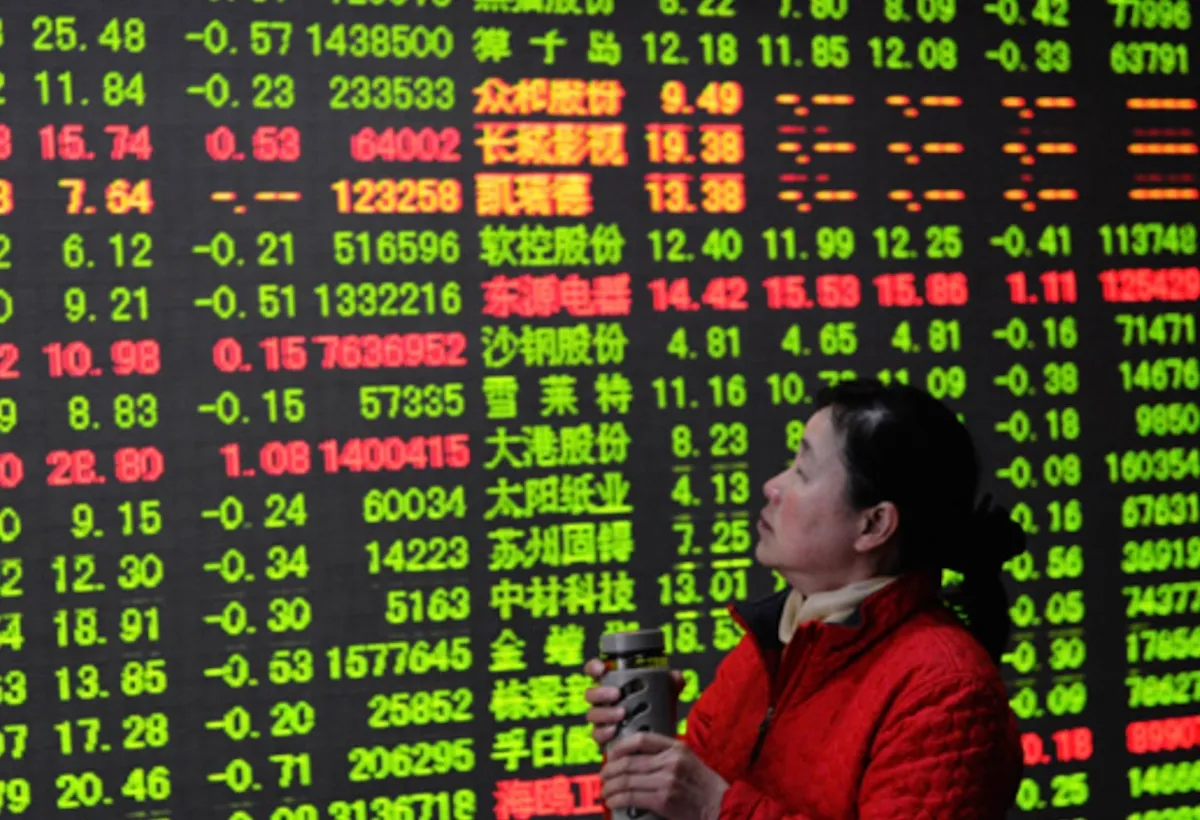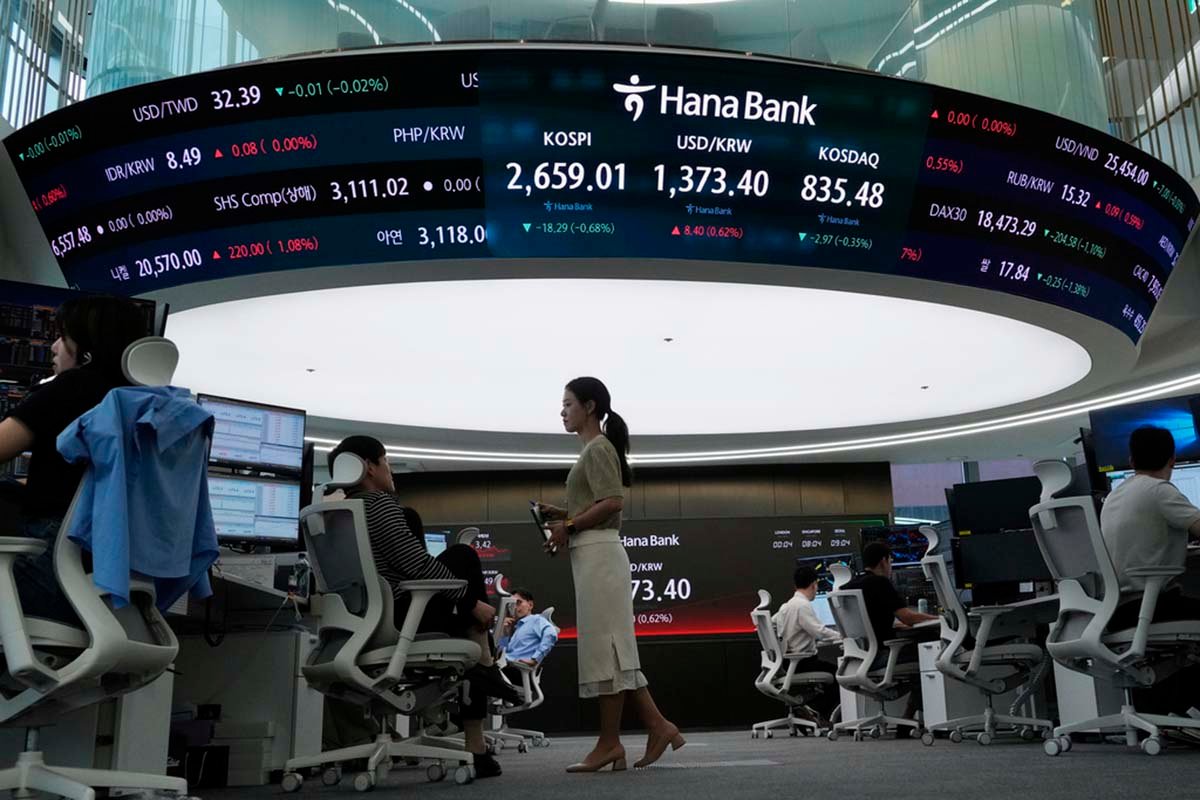China’s stock market is one of the largest and most dynamic in the world, playing a crucial role in the global economy. As the second-largest economy, China’s financial markets are a key indicator of global economic health, drawing the attention of investors, policymakers, and analysts worldwide. The country’s stock exchanges, such as the Shanghai Stock Exchange (SSE) and the Shenzhen Stock Exchange (SZSE), have witnessed remarkable growth over the past few decades, with China emerging as a global investment hub.
However, despite its rapid rise, the Chinese stock market has faced significant challenges. From regulatory changes to fluctuating economic indicators, investors often face a complex landscape when navigating China’s equities. This article will explore the current trends in the Chinese stock market, the challenges it faces, and its future outlook, providing valuable insights for those looking to invest or analyze China’s financial markets.
Current Trends in the China Stock Market
The Chinese stock market has experienced substantial growth over the years, with the Shanghai Stock Exchange being one of the world’s largest stock exchanges by market capitalization. The past few years have seen several important trends shaping the direction of the market.
1. Technology and Innovation Lead the Market
China has witnessed a surge in its tech sector, with companies in areas like e-commerce, fintech, artificial intelligence, and electric vehicles (EVs) attracting significant attention from both domestic and international investors. Industry giants like Alibaba, Tencent, and NIO have grown into global names, and their success has been a driving force behind the bullish market sentiment in the country.
The Chinese government has also made a concerted push to promote innovation and self-reliance, particularly in areas such as technology and advanced manufacturing. This has resulted in significant investment flowing into sectors like semiconductors, 5G, and clean energy, all of which are expected to play a critical role in China’s economic future.
For instance, NIO and XPeng Motors, which are often considered China’s answer to Tesla, have gained considerable momentum in the electric vehicle market, contributing to China’s increasing prominence in the EV sector. Companies in the technology space, such as Alibaba and Baidu, have been integral to the rise of the tech-heavy ChiNext Index in Shenzhen, which has performed strongly due to its exposure to tech stocks.
2. Regulatory Overhaul and Crackdowns
One of the most significant trends in recent years has been the Chinese government’s increased regulatory scrutiny of major sectors. The most notable example is the government’s crackdown on large tech companies. In 2021, China’s State Administration for Market Regulation (SAMR) launched investigations into the country’s biggest tech giants, including Alibaba, Tencent, and Meituan, accusing them of anti-competitive practices and monopolistic behavior. These actions led to a significant decrease in stock prices for these companies, and raised concerns over government intervention in the market.
The Chinese government has also focused on “financial deleveraging” — trying to reduce the debt burden of certain sectors, especially property developers. Companies such as Evergrande, one of China’s largest real estate developers, have become emblematic of the risks associated with high levels of corporate debt in China. As of late 2021, Evergrande faced massive liquidity issues, leading to fears of a potential default, which could cause a ripple effect in the broader market.
The crackdown in the tech sector and the tightening of regulations have led to heightened uncertainty for investors. While the long-term impact of these regulatory actions remains to be seen, they have undoubtedly created a more complex environment for investors in China.
3. Rising Domestic Investment and Retail Participation
In recent years, domestic retail investors have become an increasingly important player in China’s stock market. The rise of mobile trading platforms, such as Alipay and WeChat, has made it easier for individual investors to access the stock market, resulting in an influx of retail capital. According to recent reports, retail investors account for nearly 80% of the trading volume on China’s stock exchanges.
This trend is both an opportunity and a challenge for the Chinese stock market. On one hand, increased domestic participation can help deepen liquidity and improve market efficiency. On the other hand, retail investors are often more prone to emotional decision-making and speculation, which can lead to higher market volatility.
4. Foreign Investment in Chinese Equities
Foreign investment in China has increased significantly over the years, especially after China’s inclusion in global indices like the MSCI Emerging Markets Index. Foreign investors have become increasingly attracted to China’s large consumer market, strong economic growth, and rapid industrialization. Several global asset management firms, including BlackRock and Fidelity, have expanded their exposure to Chinese stocks in recent years.
The opening up of Chinese financial markets to foreign investors, including the Stock Connect Program linking the Shanghai and Hong Kong exchanges, has provided greater access to China’s stock market. However, foreign investment has been volatile due to the aforementioned regulatory risks and geopolitical tensions. Tensions between the U.S. and China over issues like trade and technology also add an element of uncertainty to foreign investments in Chinese equities.
Challenges Facing the China Stock Market
While China’s stock market continues to grow, it faces several challenges that could impact its long-term trajectory. Understanding these challenges is key for investors and market analysts.
1. Regulatory Uncertainty
As mentioned earlier, the Chinese government’s increasing regulatory intervention has created a challenging environment for investors. The government’s moves to limit the power of tech giants, crack down on data privacy issues, and curb financial speculation have created an atmosphere of uncertainty in the market.
Investors often fear the unpredictability of government policies, which can significantly alter the prospects of individual companies or entire sectors. While these actions are seen by some as necessary to ensure long-term stability, they also carry the risk of deterring investment, particularly from international investors who are wary of sudden regulatory changes.
2. Economic Slowdown
China’s rapid economic growth in recent decades has slowed, which has contributed to growing concerns about the future of the stock market. After decades of double-digit growth, China’s GDP growth has moderated to more sustainable levels. This slowdown, coupled with ongoing issues like aging demographics, excess debt, and the real estate crisis, has raised questions about China’s long-term growth prospects.
For investors in the Chinese stock market, an economic slowdown could dampen corporate profits, potentially leading to lower stock prices and increased volatility.
3. Geopolitical Risks
Geopolitical tensions, particularly between the U.S. and China, pose a significant risk to the Chinese stock market. Ongoing trade disputes, sanctions, and restrictions on Chinese companies have the potential to disrupt China’s financial markets. For example, the U.S. government’s decision to delist certain Chinese companies from U.S. stock exchanges and restrictions on Chinese tech firms like Huawei have raised concerns about the future of Chinese equities in global markets.
In addition, tensions in the Taiwan Strait, Hong Kong, and the South China Sea could lead to greater instability in China’s financial markets.
4. Debt Levels and the Property Sector Crisis
China’s property sector, particularly the debt-laden real estate market, has been a key area of concern. The Evergrande crisis highlighted the systemic risks posed by the massive debt accumulation in the real estate sector. The crisis led to fears of a potential credit crunch and the possible collapse of other developers, which could have broader implications for the financial system.
High levels of corporate and local government debt continue to be a challenge in China, and there are concerns that a wave of defaults could trigger a financial crisis. The government’s efforts to curb property speculation may also dampen growth in the real estate sector, which has been a significant driver of economic growth in recent years.
Future Outlook for the China Stock Market
Looking forward, the future of China’s stock market remains both promising and uncertain. On the positive side, China’s economic reforms and push for innovation in sectors such as technology, clean energy, and electric vehicles could provide significant opportunities for investors. The country’s large consumer market and government support for innovation are key factors that will continue to drive growth in these industries.
However, the risks outlined earlier—regulatory intervention, economic slowdown, geopolitical tensions, and the real estate crisis—could weigh on market performance in the short to medium term. Additionally, the volatility caused by retail investors and regulatory uncertainty may lead to fluctuations in stock prices, making the market more unpredictable.
In conclusion, while the China stock market remains an attractive destination for investors looking for long-term growth, it is important to be aware of the challenges that could affect the market’s performance. As the market continues to mature and evolve, investors must be prepared to navigate its complexities while keeping an eye on the broader economic and geopolitical landscape.
For more insights on global markets and economic trends, stay tuned to Realtime Coverage.

